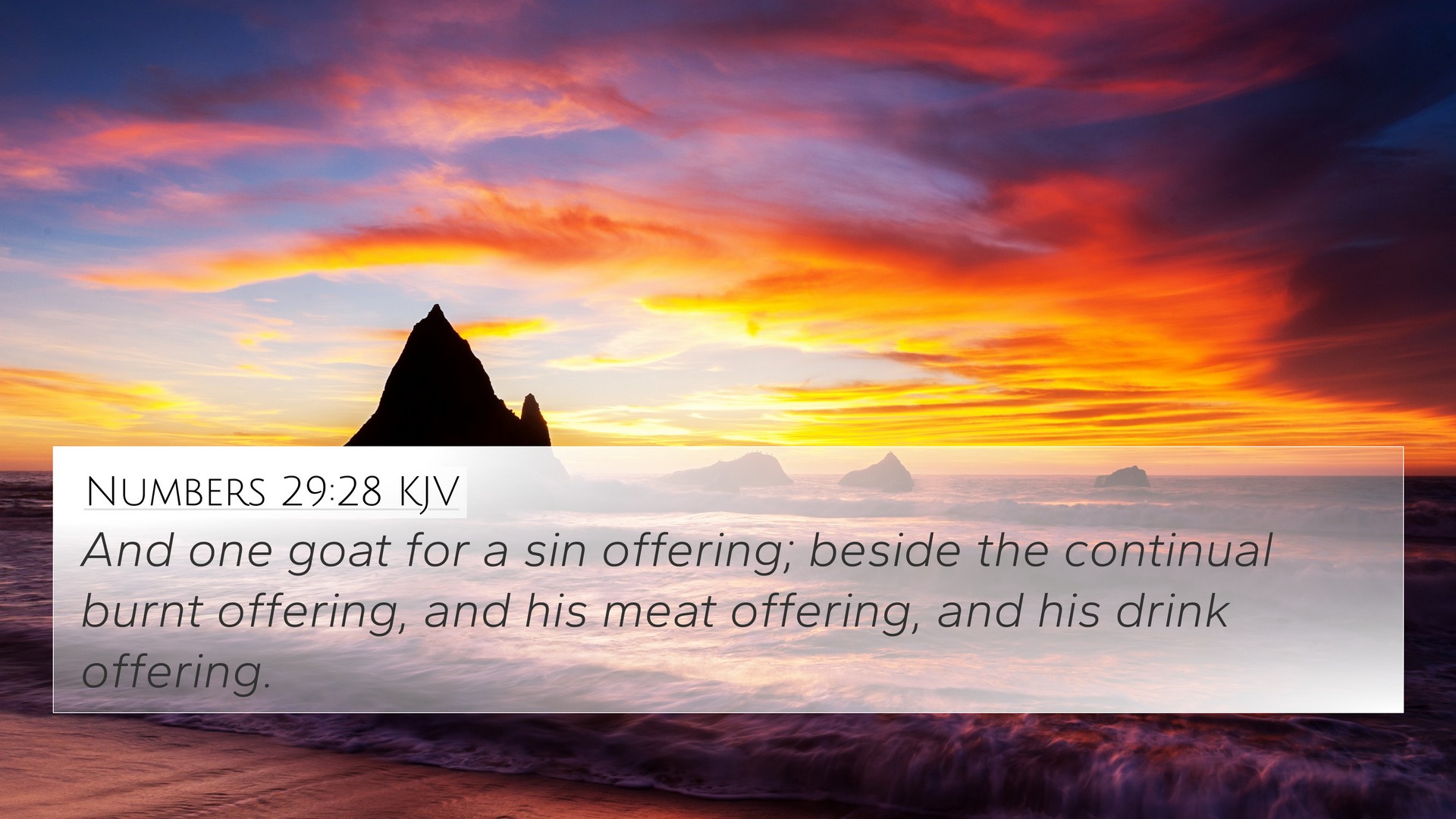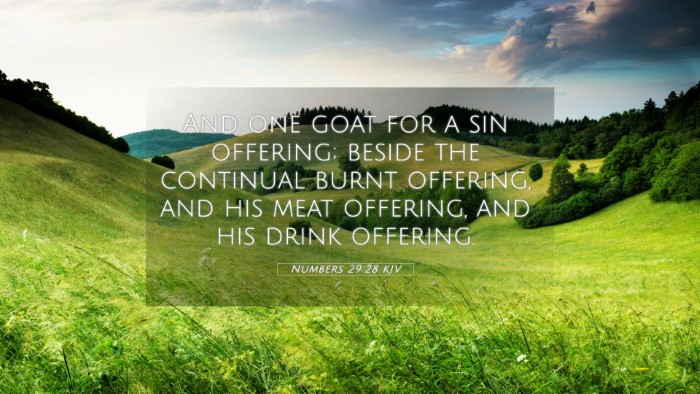Understanding Numbers 29:28
Numbers 29:28 states: "And one kid of the goats for a sin offering, to make an atonement for you." This passage is situated in a part of the Bible that discusses the various offerings and sacrifices the Israelites were to present to God during their festivals, particularly the Feast of Tabernacles. The significance of the sin offering is profound, as it symbolizes the need for atonement for sin and the restoration of a right relationship with God.
Commentary Insights
Matthew Henry's Commentary
Henry emphasizes the importance of the sin offering in this verse, noting that it indicates the seriousness of sin and the necessity for repentance. He points out that the goat serves as a substitute, absorbing the people's sin, reflecting God's mercy and provision for cleansing. This offering highlights the themes of sacrifice and reconciliation between God and the people.
Albert Barnes' Notes
Barnes offers insight into the systematic approach that the Israelites were instructed to follow. He details how each type of offering served a particular purpose within the broader context of worship and atonement. The mention of the goat as a sin offering underlines the doctrine of substitutionary atonement – a concept that resonates throughout the biblical narrative, culminating in the New Testament.
Adam Clarke's Commentary
Clarke focuses on the ritualistic aspects of the sin offering, explaining the symbolism attached to the goat. He connects this verse to the larger sacrificial system established in the Law of Moses, suggesting that every offering points towards the ultimate sacrifice of Christ. The act of offering a goat underscores both individual and communal responsibility for sin and highlights God's desire for a relationship founded on holiness and redemption.
Thematic Connections and Cross-References
This verse connects with various themes and passages throughout the Bible, emphasizing the recurrent motif of atonement and sacrifice. Below are notable cross-references that enrich our understanding of Numbers 29:28:
- Leviticus 4:27-31: Discusses the sin offering and its purpose for the individual who commits unintentional sins.
- Isaiah 53:6: Highlights the concept of the Lord laying upon Him the iniquity of us all, resonating with the idea of a substitute for sin.
- Hebrews 9:22: States that without the shedding of blood, there is no remission, underscoring the necessity of sacrifice for atonement.
- 1 Peter 2:24: Speaks of Jesus bearing our sins in His own body, connecting to the sacrificial system of the Old Testament.
- Romans 5:8: Proclaims God’s love demonstrated in Christ's sacrificial death for sinners, reflecting the heart of the sin offering.
- John 1:29: John the Baptist identifies Jesus as the Lamb of God, signifying His role as the ultimate sin offering.
- 2 Corinthians 5:21: Indicates that God made Christ, who knew no sin, to be sin for us, reaffirming the transformative power of the atonement.
Practical Application
Understanding the sin offering can lead to profound reflection on themes of guilt, grace, and redemption. In modern application, believers are reminded that while Christ’s sacrifice is the fulfillment of the sin offering, the practice of confession and repentance remains vital. Engaging with this verse encourages Christians to regularly examine their hearts and seek restoration with God through sincere repentance.
Conclusion
Numbers 29:28 stands as a vital scripture within the broader context of the sacrificial system laid out in the Mosaic Law. By exploring this verse alongside relevant commentaries and cross-references, we gain deeper insight into the significance of atonement in both the Old and New Testaments. Such explorations provide a comprehensive understanding of God’s redemptive plan for humanity through Christ.


